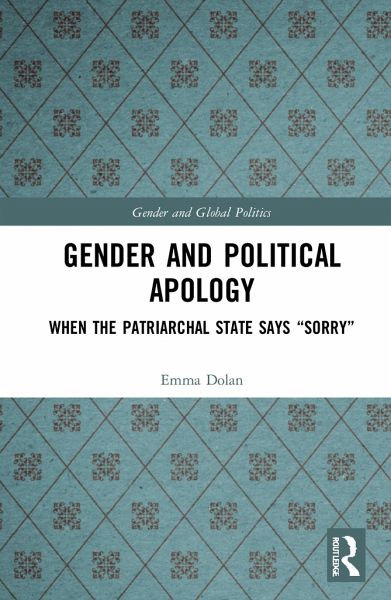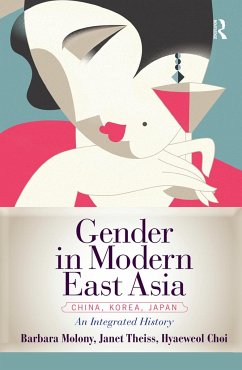
Gender and Political Apology
When the Patriarchal State Says "Sorry"
Versandkostenfrei!
Versandfertig in 1-2 Wochen
167,99 €
inkl. MwSt.
Weitere Ausgaben:

PAYBACK Punkte
84 °P sammeln!
This book provides a much-needed gendered reading to the increasingly important practice of political apology. Engaging in depth with two cases of interstate apologies for conflict-related sexual violence - Japan's apologies for the South Korean "comfort women" and US apologies for the Abu Ghraib scandal - the author argues that political apologies are particularly "excitable" or uncontrollable forms of speech which are composed of and rearticulate historically constituted gender norms. In doing so, political apologies work to recognise and make visible particular gendered victims whilst simul...
This book provides a much-needed gendered reading to the increasingly important practice of political apology. Engaging in depth with two cases of interstate apologies for conflict-related sexual violence - Japan's apologies for the South Korean "comfort women" and US apologies for the Abu Ghraib scandal - the author argues that political apologies are particularly "excitable" or uncontrollable forms of speech which are composed of and rearticulate historically constituted gender norms. In doing so, political apologies work to recognise and make visible particular gendered victims whilst simultaneously obscuring others. Through the concept of "legitimate victimhood", the author examines the performative ways in which political apologies (re)negotiate and (re)make embodied gendered identities. Ultimately, she argues that the ambivalent form of recognition offered by the performance of official apologies in these cases resulted in numerous unintended consequences, including opportunities for victims to demonstrate linguistic agencies. Political apologies for conflict-related sexual violence can therefore - indirectly - empower the gendered victims addressed. This book will be of great interest to students, academics, and researchers in the fields of politics and international relations, women's and gender studies, memory studies, victimology, transitional justice, human rights, and peace and conflict studies. It will also interest policymakers, practitioners, and campaign groups involved in such areas as justice for gender-based violence.













